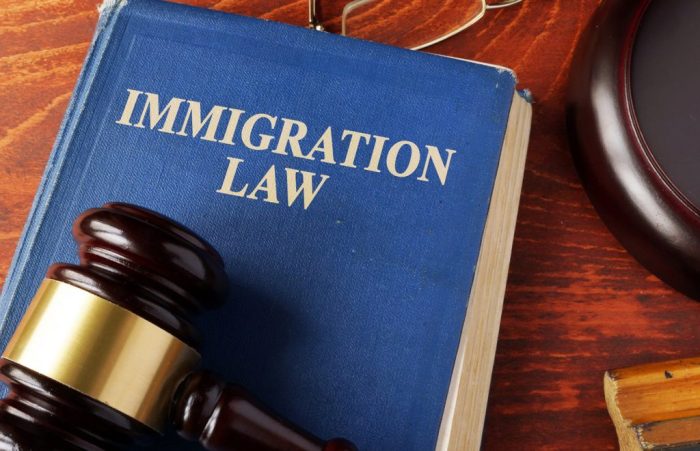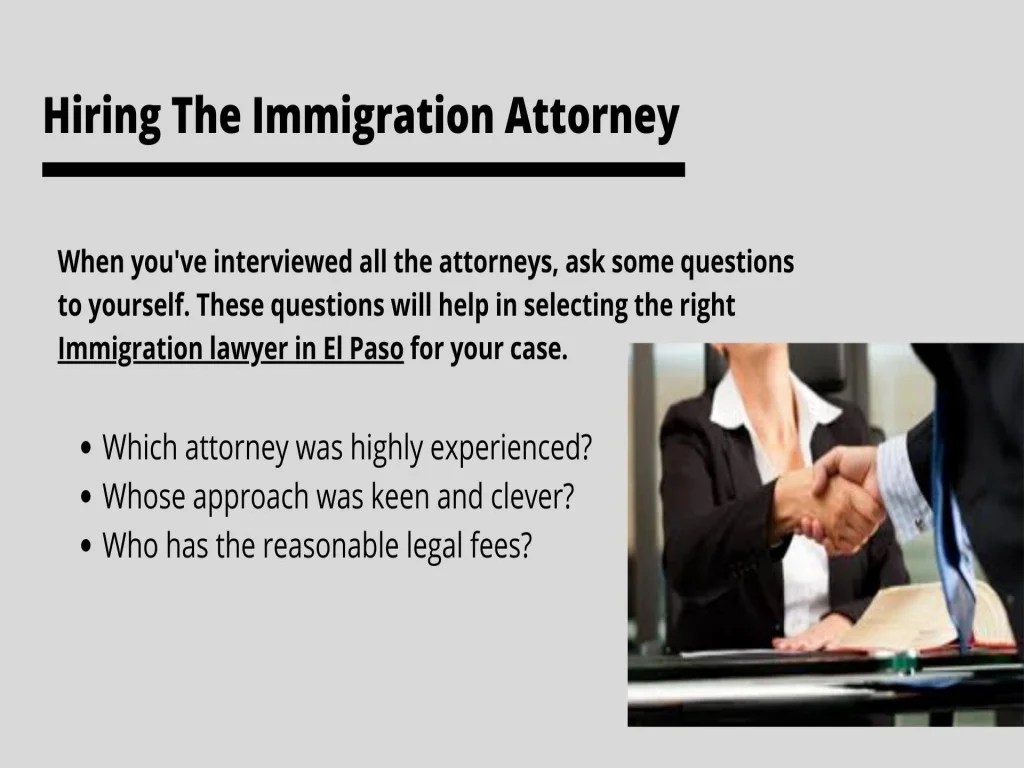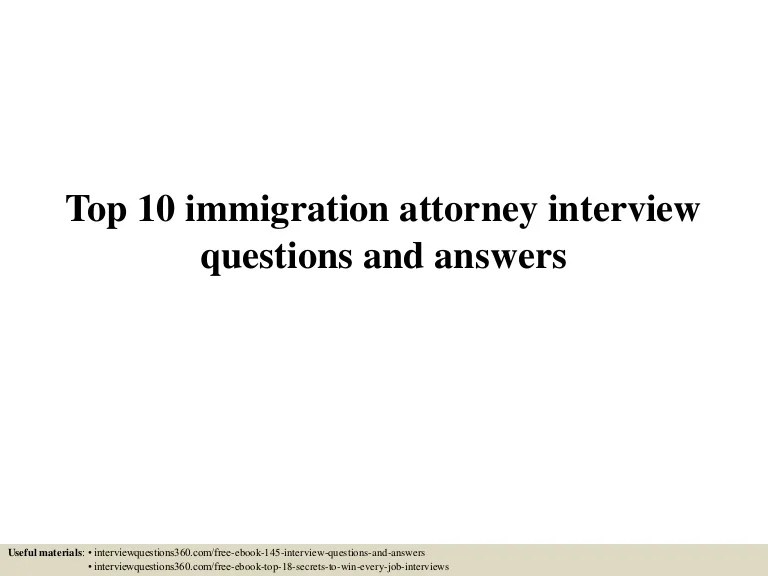Navigating the complexities of immigration law can be a daunting task. Whether you’re seeking a visa, applying for citizenship, or facing deportation proceedings, consulting an experienced immigration lawyer is crucial. To ensure a successful outcome, it’s essential to ask the right questions during your initial consultation.
This comprehensive guide provides a list of the top 10 questions to ask an immigration lawyer, empowering you with the knowledge to make informed decisions and maximize your chances of achieving your immigration goals.
Types of Immigration Cases
Immigration cases encompass a wide range of legal matters related to the entry, residence, and status of foreign nationals within a country. These cases vary significantly in their complexity and the specific legal issues involved. Understanding the different types of immigration cases can help individuals navigate the complex immigration system and determine the appropriate legal recourse for their particular situation.
Family-Based Immigration
Family-based immigration allows foreign nationals to obtain legal status in a country based on their relationship with a citizen or permanent resident. This category includes cases such as:
- Spousal visas for foreign spouses of citizens or permanent residents
- Parent visas for parents of U.S. citizens or permanent residents
- Sibling visas for siblings of U.S. citizens
- Fiancé(e) visas for foreign fiancés(ées) of U.S. citizens
Employment-Based Immigration
Employment-based immigration provides a pathway for skilled foreign workers to obtain legal status in a country based on their job offers or specialized skills. This category includes cases such as:
- H-1B visas for temporary workers in specialty occupations
- L-1 visas for intracompany transferees
- EB-5 visas for investors
- PERM labor certifications for permanent employment-based visas
Humanitarian Immigration
Humanitarian immigration offers protection and legal status to foreign nationals who face persecution, violence, or other hardships in their home countries. This category includes cases such as:
- Asylum for individuals who have fled their home countries due to a well-founded fear of persecution
- Refugee status for individuals who have been displaced from their home countries due to war, violence, or natural disasters
- Temporary Protected Status (TPS) for individuals from certain countries who are unable to return home due to ongoing armed conflict or natural disasters
Naturalization and Citizenship
Naturalization is the process by which foreign nationals become citizens of a country. This process typically involves meeting certain eligibility requirements, such as residing in the country for a specific period, demonstrating good moral character, and passing a citizenship test.
Deportation and Removal
Deportation and removal refer to the legal process by which foreign nationals are ordered to leave a country. This can occur for various reasons, such as violating immigration laws, committing crimes, or failing to maintain legal status.
Eligibility Requirements
Understanding eligibility requirements is crucial for any immigration case. These requirements vary depending on the type of immigration benefit being sought. It is essential to determine if an individual meets the eligibility criteria for a particular immigration benefit before proceeding with the application process.
To determine eligibility, an immigration lawyer will assess factors such as the applicant’s country of origin, current immigration status, family ties in the United States, education, work experience, and criminal history. Based on this assessment, the lawyer can provide guidance on the likelihood of the applicant being approved for the desired immigration benefit.
Types of Eligibility Requirements
- Country of Origin: Eligibility for certain immigration benefits may be restricted to citizens of specific countries or regions.
- Current Immigration Status: An individual’s current immigration status, such as lawful permanent resident or temporary visa holder, can impact their eligibility for other immigration benefits.
- Family Ties: Family-based immigration options require the applicant to have a qualifying relationship with a U.S. citizen or lawful permanent resident.
- Education and Work Experience: Some immigration categories, such as employment-based visas, have specific education or work experience requirements.
- Criminal History: Criminal convictions can affect an individual’s eligibility for certain immigration benefits, especially those involving moral turpitude or national security concerns.
Application Process

The application process for immigration cases varies depending on the type of case and the applicant’s circumstances. However, there are some general steps that apply to most cases.
The first step is to determine if you are eligible to apply for immigration benefits. This can be done by consulting with an immigration lawyer or by visiting the website of the United States Citizenship and Immigration Services (USCIS).
Required Documents
Once you have determined that you are eligible to apply, you will need to gather the required documents. These documents may include:
- A valid passport
- Proof of identity
- Proof of income
- Proof of residence
- Medical records
- Criminal history records
The specific documents required will vary depending on the type of case you are applying for.
Application Fees
In addition to the required documents, you will also need to pay the appropriate application fees. The fees vary depending on the type of case you are applying for.
Once you have gathered the required documents and paid the application fees, you can submit your application to USCIS. You can submit your application online, by mail, or in person at a USCIS office.
After you have submitted your application, USCIS will review it and make a decision. If your application is approved, you will be granted the immigration benefits you applied for.
Timeline and Processing Times

The timeline and processing times for immigration cases vary depending on the type of case, the applicant’s circumstances, and the current workload of the U.S. Citizenship and Immigration Services (USCIS).
Generally, the processing times for family-based immigration cases are shorter than those for employment-based cases. The processing times for asylum cases can vary significantly depending on the country of origin and the complexity of the case.
Factors Affecting Processing Times
- Type of immigration case
- Applicant’s circumstances (e.g., country of origin, criminal history)
- Current workload of USCIS
- Availability of resources
- Government shutdowns or other unforeseen events
Legal Fees and Costs

Immigration legal fees can vary depending on the complexity of the case, the type of immigration application, and the lawyer’s experience and reputation. It’s important to discuss fees and costs with your lawyer upfront to avoid any surprises later on.
Some of the factors that can affect legal fees include:
- The type of immigration case
- The complexity of the case
- The amount of time required to prepare and file the application
- The lawyer’s experience and reputation
- The location of the lawyer’s office
Payment Arrangements
Lawyers typically offer different payment arrangements, such as hourly rates, flat fees, or a combination of both. Hourly rates can range from $150 to $350 per hour, while flat fees can range from $1,000 to $10,000 or more. Some lawyers may also offer payment plans to make the fees more affordable.
Role of an Immigration Lawyer

An immigration lawyer is a legal professional who specializes in immigration law and can provide valuable assistance throughout the immigration process. They possess a deep understanding of complex immigration laws and regulations and can help individuals navigate the often-challenging immigration system.
Benefits of Working with an Immigration Lawyer
There are numerous benefits to working with an immigration lawyer, including:
- Expertise and Knowledge: Immigration lawyers stay up-to-date with the latest immigration laws and policies, ensuring that their clients receive accurate and timely advice.
- Personalized Guidance: Each immigration case is unique, and an immigration lawyer can provide personalized guidance tailored to the specific needs and circumstances of their client.
- Representation in Legal Proceedings: If an immigration case involves legal proceedings, such as a hearing or trial, an immigration lawyer can represent their client and advocate for their rights.
- Reduced Risk of Errors: The immigration process is complex, and working with an immigration lawyer can help reduce the risk of errors that could delay or even jeopardize an application.
- Increased Chances of Success: An experienced immigration lawyer can significantly increase the chances of a successful immigration application by ensuring that all necessary documents are filed correctly and that the client is well-prepared for any interviews or hearings.
Common Mistakes to Avoid

When applying for immigration benefits, it’s essential to avoid common pitfalls that can delay or even jeopardize your application.
Incorrect or Incomplete Information
Meticulously review your application for accuracy and completeness. Ensure that all information provided is true, consistent, and supported by proper documentation. Incomplete or erroneous information can result in delays or denials.
Failure to Follow Instructions
Pay meticulous attention to application instructions and deadlines. Neglecting to adhere to these guidelines can lead to rejected or delayed applications.
Missing Required Documentation
Gather and submit all necessary documentation as per the application requirements. Incomplete documentation can significantly delay the processing of your application.
Unauthorized Representation
Beware of individuals or organizations that offer immigration services without proper authorization. Only licensed immigration attorneys or accredited representatives can provide legal advice and represent you in immigration matters.
Unrealistic Expectations
Recognize that the immigration process can be lengthy and complex. Avoid setting unrealistic timelines or expectations. Allow ample time for processing and be prepared for potential delays or complications.
Resources for Immigrants

Navigating the immigration process can be challenging, but numerous resources are available to assist immigrants.
These resources include government agencies, non-profit organizations, and online platforms that provide guidance, support, and legal assistance.
Government Agencies
- U.S. Citizenship and Immigration Services (USCIS): The primary agency responsible for immigration matters, providing information, forms, and processing applications.
- Department of Homeland Security (DHS): Oversees immigration enforcement and border security, including Customs and Border Protection (CBP) and Immigration and Customs Enforcement (ICE).
- Department of State (DOS): Handles passport and visa matters, including processing applications for foreign nationals.
Non-Profit Organizations
- National Immigration Forum: Advocates for immigration reform and provides resources to immigrants.
- American Immigration Council: Conducts research, provides policy analysis, and advocates for immigrant rights.
- Immigrant Legal Resource Center: Offers legal assistance, training, and advocacy for immigrants.
Online Resources
- USCIS website: Comprehensive source of information, forms, and online tools.
- Immigrant Services Directory: Database of non-profit organizations providing immigration-related services.
- Immigration Advocates Network: Directory of immigration lawyers and advocates.
To access these resources, immigrants can visit websites, call hotlines, or attend in-person events. Many organizations also offer language assistance and materials in multiple languages.
Current Immigration Policies
The current immigration policies in the United States are complex and ever-changing. They impact immigrants in a variety of ways, including their ability to enter the country, obtain legal status, and become citizens.
It is important for immigrants to stay up-to-date on the latest immigration policy changes. They can do this by reading reputable news sources, following immigration advocacy organizations on social media, and consulting with an immigration lawyer.
Impact of Current Policies
- Increased border security measures have made it more difficult for immigrants to enter the United States without authorization.
- The Trump administration’s “zero tolerance” policy resulted in the separation of thousands of migrant children from their parents at the border.
- The Biden administration has reversed some of the Trump-era policies, but many challenges remain for immigrants.
Future of Immigration Law

The future of immigration law is uncertain, but it is likely to be shaped by a number of factors, including the changing demographics of the United States, the global economy, and the political climate.
One of the most significant changes that is likely to occur in the future of immigration law is a shift in the demographics of the United States. The United States is becoming increasingly diverse, and this trend is expected to continue in the coming years.
As the population of the United States becomes more diverse, the demand for immigration lawyers is likely to increase.
Another factor that is likely to shape the future of immigration law is the global economy. The global economy is becoming increasingly interconnected, and this is leading to an increase in the number of people who are migrating to the United States in search of work.
As the global economy continues to grow, the demand for immigration lawyers is likely to increase.
The political climate is also likely to play a role in shaping the future of immigration law. The current political climate is hostile to immigration, and this is likely to continue in the coming years. As the political climate becomes more hostile to immigration, the demand for immigration lawyers is likely to increase.
Potential Changes to Immigration Policies
There are a number of potential changes to immigration policies that could occur in the future. One possibility is that the United States will adopt a more restrictive immigration policy. This could include reducing the number of immigrants who are allowed to enter the United States, increasing the requirements for obtaining a visa, and making it more difficult to become a citizen of the United States.
Another possibility is that the United States will adopt a more open immigration policy. This could include increasing the number of immigrants who are allowed to enter the United States, reducing the requirements for obtaining a visa, and making it easier to become a citizen of the United States.
The future of immigration law is uncertain, but it is likely to be shaped by a number of factors, including the changing demographics of the United States, the global economy, and the political climate.
Outcome Summary

By asking these key questions, you can gain a clear understanding of your legal rights, the potential risks and benefits of your case, and the best course of action to pursue. Remember, choosing the right immigration lawyer is an investment in your future.
By engaging in open and thorough communication, you can establish a strong foundation for a successful partnership and increase your chances of achieving a favorable outcome in your immigration journey.
Common Queries
1. What types of immigration cases do you handle?
This question helps you determine the lawyer’s experience and expertise in the specific area of immigration law relevant to your case.
2. What are the eligibility requirements for my type of case?
Understanding the eligibility criteria is crucial to assess your chances of success and avoid potential setbacks.
3. What is the typical timeline and processing time for my case?
Knowing the expected timeframe can help you plan accordingly and manage your expectations.
4. What are your legal fees and costs?
Transparency about fees is essential to avoid unexpected expenses and ensure you can afford the lawyer’s services.
5. What are the potential risks and benefits of my case?
A thorough discussion of potential outcomes allows you to make informed decisions and prepare for various scenarios.
6. What documents and evidence will I need to provide?
Knowing the required documentation helps you gather and organize the necessary materials for a strong case.
7. What is your communication style and availability?
Establishing clear communication expectations ensures you can easily reach your lawyer and receive timely updates.
8. What is your success rate in handling cases like mine?
While past results do not guarantee future outcomes, understanding the lawyer’s track record can provide insights into their competence.
9. Do you offer payment plans or financial assistance?
Exploring payment options can help you manage the financial burden of legal services.
10. What is your professional background and experience?
Learning about the lawyer’s education, certifications, and previous roles can give you confidence in their qualifications.



